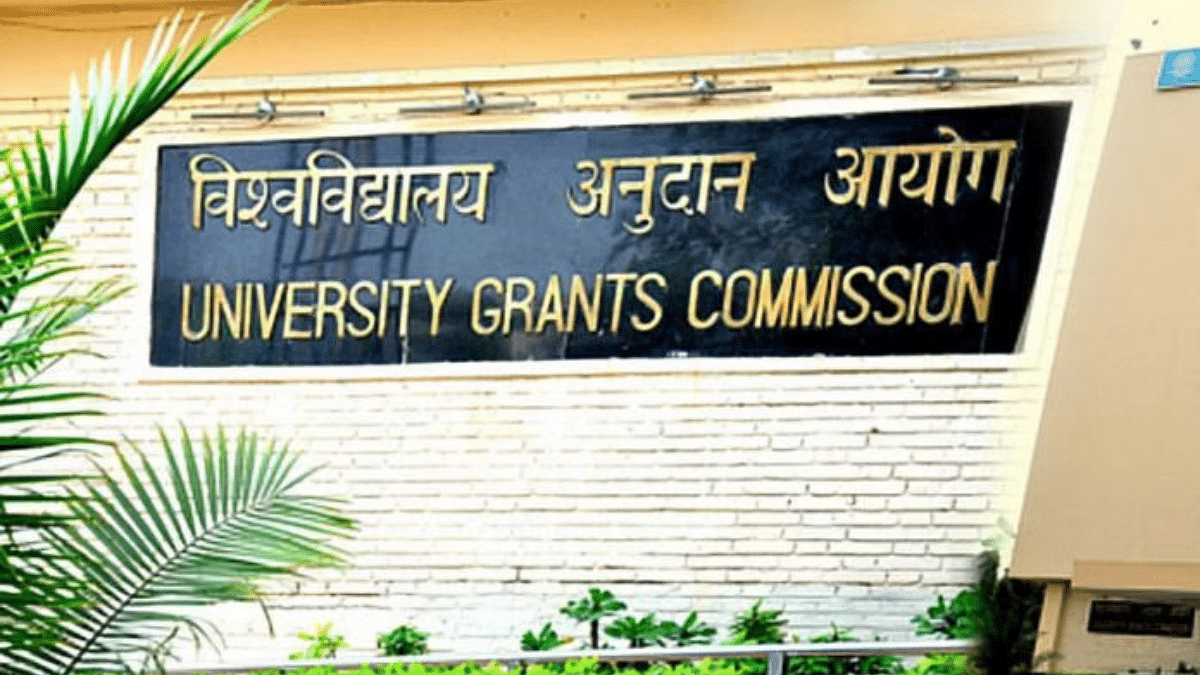New Delhi: Higher education institutions (HEIs) may soon be able to recognise and award credits for informal learning, including generational knowledge of healers, performers, and artisans, allowing them to convert their skills and experiences into formal qualifications and certifications.
On Tuesday, the University Grants Commission (UGC) released draft guidelines for the implementation of recognition of prior learning (RPL) in higher education, for public consultation.
The guidelines are aligned with the National Education Policy (NEP) 2020 and the National Skills Qualifications Framework, which emphasise on recognition of prior learning to facilitate admissions or reduce course duration in higher education.
“We must address the challenges faced by India’s large informal workforce, which requires formal education and career progression opportunities. Recognition of Prior Learning (RPL) is integral to the vision of NEP 2020. RPL allows individuals to gain formal recognition for skills and competencies acquired through informal, non-formal, or experiential learning,” UGC chairperson M. Jagadesh Kumar Kumar told ThePrint.
Emphasising that RPL will help bridge the gap between real-world experience and formal education and enhance career prospects, he said, “It will contribute to economic growth, social inclusion, and a more skilled workforce.”
RPL is commonly used in Australia, South Africa, and New Zealand, according to the UGC guidelines. It is called Prior Learning Assessment (PLA) in America and Prior Learning Assessment Recognition (PLAR) in Canada. Other terms such as Accreditation of Prior Learning (APL) and Validation of Prior Learning (VPL) are used globally to refer to similar processes.
In Ireland, RPL is a key part of the National Strategy for Higher Education to 2030, focusing on credit accumulation, transfer, and formal assessment of prior knowledge.
A 2013 report by the European Commission highlighted the importance of RPL, noting that out of 47 higher education systems for which data was available, RPL could be used for facilitating access, seeking admission to higher education, or progressing within higher education for 24.
Also Read: Cost of higher education in India is leaving parents drained, in debt. ‘We put our own dreams on hold’
What includes prior learning
The RPL guidelines recognise various learning experiences, including on-the-job training, volunteering, self-study, and life experiences, as valid sources for gaining credits toward qualifications. It also values internships and apprenticeships that combine practical work with academic study, as well as project-based learning that fosters critical thinking and collaboration.
They further acknowledge skills gained through volunteer work, workshops, and seminars, along with online courses and webinars. Personal interests, peer learning, and involvement in community groups also contribute to skill development and knowledge sharing.
The guidelines support immersive learning through diverse cultural, regional, and educational experiences, including virtual reality and educational games. Mentorship, especially through traditional Guru-Shishya Parampara (teacher-disciple tradition), plays a key role in recognising experiential learning.
Lastly, RPL validates generational knowledge, including skills from traditional healers, artisans, and cultural practitioners, reinforcing the value of such expertise in the formal education framework.
How will it work
The prospective candidates will submit documents, such as transcripts, work experience records, apprenticeships, project work, and other evidence of prior learning. They have to compile a portfolio showcasing their achievements, including work samples, projects, certificates, and reflective writing, with guidance on ensuring the evidence is relevant, up-to-date, and independently verified.
Candidates may also undergo structured interviews or oral exams with subject-matter experts to assess their knowledge and communication skills. The HEIs will establish RPL committees or assessment centers to conduct assessments and maintain the necessary documentation for audits and governance improvements.
The UGC guidelines gave some case studies to help stakeholders understand the proposals suggested for them. For example, Suresh, an entrepreneur with eight years of retail business experience, seeks to use RPL for an MBA. For this, he submits a detailed portfolio of his business operations, including financial records, marketing strategies, and testimonials from partners and clients.
The RPL Assessment Body reviews the portfolio and conducts an interview to evaluate his practical knowledge against the MBA curriculum. Based on this assessment, Suresh is awarded credits for relevant business concepts, allowing him to skip certain courses, complete his MBA faster, and save on tuition fees.
Similarly, the case of a nurse, with a General Nursing and Midwifery (GNM) diploma, seeking to upgrade to a B.Sc. in nursing through RPL, is cited as an example for how to upgrade degrees.
After submission of GNM diploma, transcripts, and a letter from employer detailing professional experience, an assessment panel evaluates her qualifications, comparing her GNM curriculum with the B.Sc. Nursing programme. She then undergoes written and practical assessments to validate her skills and knowledge. Based on the evaluation, the RPL body awards credits, exempting her from certain courses.
The same set of rules applies to candidates applying for admissions to various courses for which they have to appear for an RPL assessment, before the nod is given for entry with exemptions in a few subjects.
Benefits for stakeholders
According to the UGC guidelines, the RPL will benefit various stakeholders. For individuals, it will open multiple pathways to higher education opportunities, providing a route for traditional skills to gain formal qualifications.
This, it adds, will also bridge the gap between informal learning and formal education systems, and enhance employment prospects by validating skills that can improve employment prospects, especially in industries valuing traditional craftsmanship and knowledge.
For higher education institutions, it will help in enrollment of a diverse student body with experiential learning backgrounds, enhance societal recognition by offering flexible learning pathways, and larger student strengths due to the inclusion of RPL.
And for industry, the Commission says, employers will have a larger workforce to meet its standards and demand. There will also be reduction in the internal training and skilling costs, effective placement of employees/ learners in suitable job roles, and improved work skills and competencies within shorter timeframes, it adds.
(Edited by Tony Rai)
Also Read: Did humanities focus slow India’s progress? New study says vocational education helped China grow

